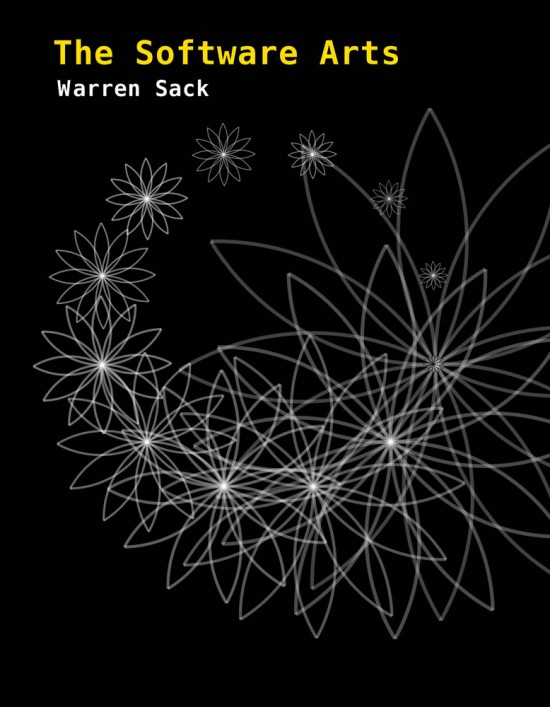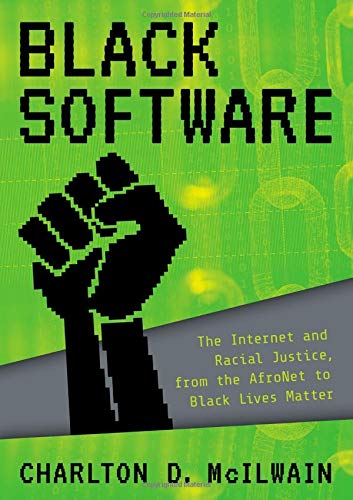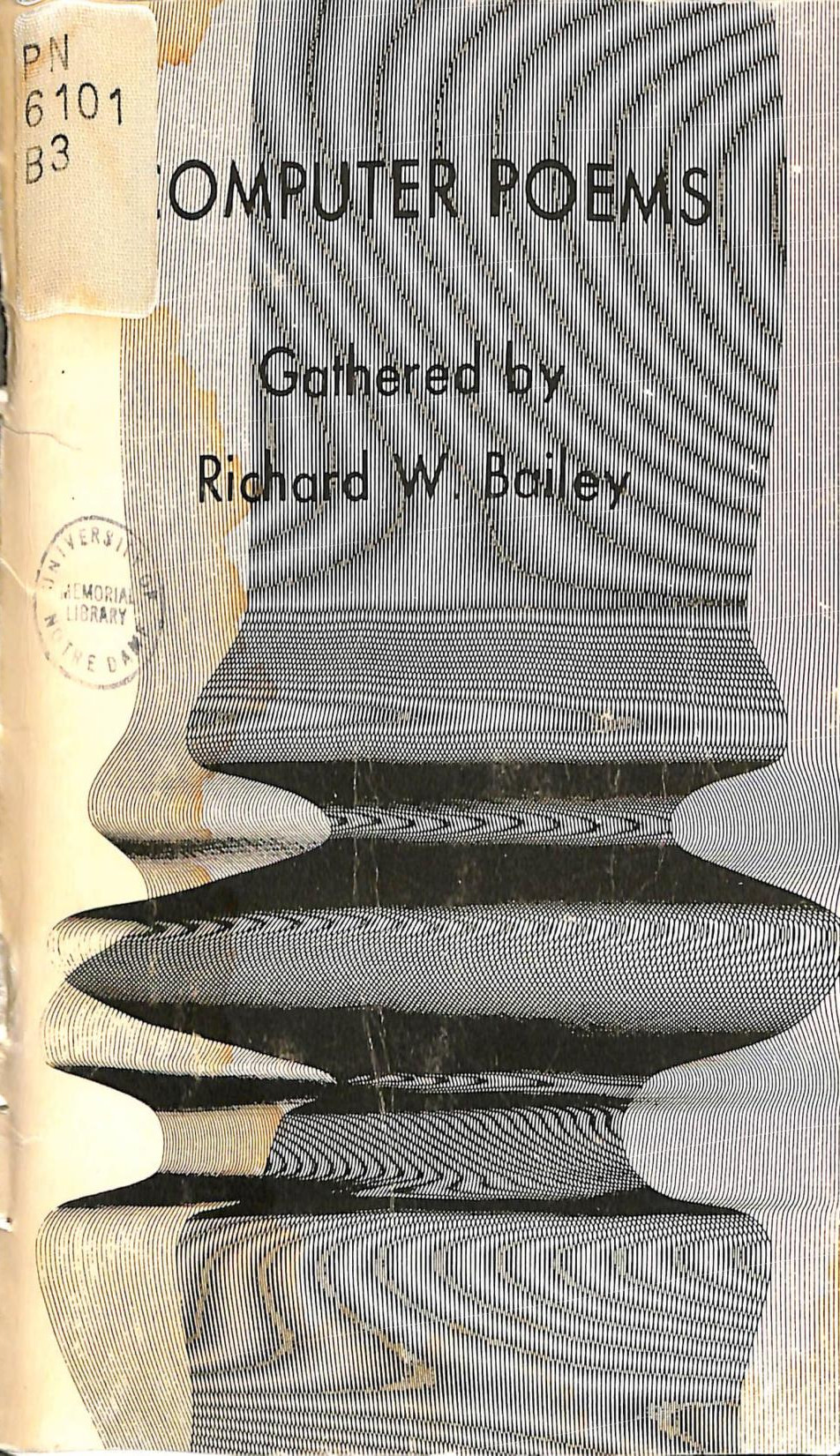Warren Sack: The Software Arts (2019)
Filed under book | Tags: · algorithm, art history, big data, computing, history of technology, language, logic, programming, software, software art, software studies, translation

“In The Software Arts, Warren Sack offers an alternative history of computing that places the arts at the very center of software’s evolution. Tracing the origins of software to eighteenth-century French encyclopedists’ step-by-step descriptions of how things were made in the workshops of artists and artisans, Sack shows that programming languages are the offspring of an effort to describe the mechanical arts in the language of the liberal arts.
Sack offers a reading of the texts of computing—code, algorithms, and technical papers—that emphasizes continuity between prose and programs. He translates concepts and categories from the liberal and mechanical arts—including logic, rhetoric, grammar, learning, algorithm, language, and simulation—into terms of computer science and then considers their further translation into popular culture, where they circulate as forms of digital life. He considers, among other topics, the “arithmetization” of knowledge that presaged digitization; today’s multitude of logics; the history of demonstration, from deduction to newer forms of persuasion; and the post-Chomsky absence of meaning in grammar. With The Software Arts, Sack invites artists and humanists to see how their ideas are at the root of software and invites computer scientists to envision themselves as artists and humanists.”
Publisher MIT Press, 2019
ISBN 9780262039703, 0262039702
xx+375 pages
PDF (19 MB)
Comment (0)Charlton D. McIlwain: Black Software: The Internet and Racial Justice, from the AfroNet to Black Lives Matter (2020)
Filed under book | Tags: · activism, afronet, black people, computing, history of computing, history of technology, internet, race, racism, technology

“Activists, pundits, politicians, and the press frequently proclaim today’s digitally mediated racial justice activism the new civil rights movement. As Charlton D. McIlwain shows in this book, the story of racial justice movement organizing online is much longer and varied than most people know. In fact, it spans nearly five decades and involves a varied group of engineers, entrepreneurs, hobbyists, journalists, and activists. But this is a history that is virtually unknown even in our current age of Google, Facebook, Twitter, and Black Lives Matter.
Beginning with the simultaneous rise of civil rights and computer revolutions in the 1960s, McIlwain, for the first time, chronicles the long relationship between African Americans, computing technology, and the Internet. In turn, he argues that the forgotten figures who worked to make black politics central to the Internet’s birth and evolution paved the way for today’s explosion of racial justice activism. From the 1960s to present, the book examines how computing technology has been used to neutralize the threat that black people pose to the existing racial order, but also how black people seized these new computing tools to build community, wealth, and wage a war for racial justice.
Through archival sources and the voices of many of those who lived and made this history, Black Software centralizes African Americans’ role in the Internet’s creation and evolution, illuminating both the limits and possibilities for using digital technology to push for racial justice in the United States and across the globe.”
Publisher Oxford University Press, 2020
ISBN 9780190863845, 0190863846
xi+296 pages
Video interview with author (Morning Joe, MSNBC, 2019).
Podcast interview with author (The Human and the Machine, 2019).
Reviews: Lori Emerson (LA Review of Books, 2021), Brian Alleyne (Computational Culture, 2021).
PDF (7 MB)
Comment (0)Richard W. Bailey (ed.): Computer Poems (1973)
Filed under book | Tags: · computing, concrete poetry, poetry, visual poetry

A collection of early computer-generated poetry gathered by Richard W. Bailey.
“At the beginning of this century, Stephane Mallarmé published a slogan for modernism: A throw of the dice will never abolish chance. Chance is not abolished by the computer’s randomizing power but is re-created in different terms. The poet-programmer finds this power a tool to create a new set of dice, multi-faceted and marked with elements of his own choosing.
Yet the new battle to free language is fought on familiar battlefields: concrete poetry is reflected with a computer mirror in the poems of Leslie Mezei and Greta Monarch; pure poetry of sound in the verbal orchestrations of Archie Donald and Noreen Greeno; imagistic poetry in the juxtaposition of the unfamiliar by Charles Forbes, James Runner, and Robin Shirley; syllabic organization in the haiku of Margaret Chisman, Robert Gaskins, and John Morris; and the imposition of order on disorder in the poems of Marie Borroff, Pete Kilgannon, and Louis Milic. From all of these varied efforts a new convention has already arisen that allows poets like Edwin Morgan the scope to simulate computer poetry without recourse to the machine.
The Potagannissing Press takes pleasure in the publication of the following collection of poems, an edition of computer-assisted literary works executed in Britain, Canada, and the United States.
The occasion for its publication was a symposium on the computer in the arts held at the Cranbrook Academy of Art in May 1973, an event sponsored by the Academy, the Bloomfield Art Association, Eastern Michigan University, and the University of Michigan, with the support of the Michigan Council for the Arts.” (from the preface)
Publisher Potagannissing Press, Drummond Island, MI, 1973
53 pages
via xfoml
Commentary: Matteo D’Ambrosio (Matlit, 2018).
PDF (7 MB, page warble is due to the book copy’s poor condition)
Internet Archive

